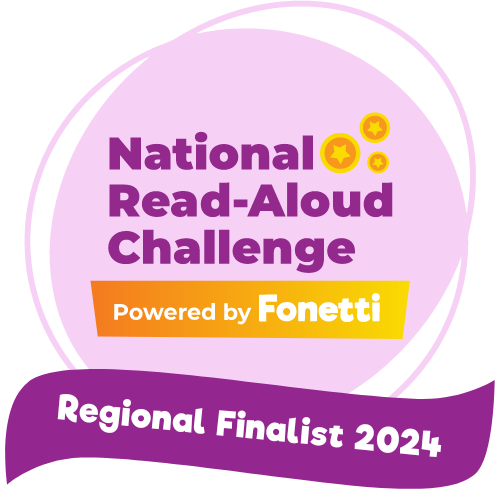Reading
Reading at Bredon Hill Academy 2024-25
At Bredon Hill Academy we take a whole school approach to reading. We believe as the recent DfE’s Reading Framework (2023) states that ‘Reading is fundamental to education.’ Every member of the school works together to develop our culture of reading and to support all pupils to develop decoding, comprehension, fluency and stamina as supported by Scarborough’s Reading Rope and the EEF’s report on Supporting Literacy in KS2 and in Secondary Schools (2021, 2019 & 2022). We believe that all pupils should be supported to be fluent readers who have a real pleasure in the written word.
Current situation;
- Reading for pleasure is embedded at BHA and we see it as integral to our learning journey.
- Each pupil has a personal Reading River Journal where they record reading and teachers have a river of dialogue about books being read ensuring progress and challenge;
- Reading River lesson are held once a fortnight;
- We have a visible reading area developed in the foyer for students and to promote reading with our community and visitors;
- Pupils’ reading skills are assessed on entry in Y6 and at timely moments throughout their time at BHA for teachers to make decisions about their needs;
- Our lowest 20% of pupils with literacy difficulties and low reading ages are supported through QFWT, trained TA support with Precision teaching slots during tutor times and within English lessons;
- Tutoring with The Lightning Squad for those in our lowest 20% - the tutoring activities are designed and structured to improve reading skills, fluency, comprehension, spelling and phonics. Thirty minutes daily during tutor times for targeted time spans.
- We have developed an ongoing in-house programme of CPD for reading skills throughout subject areas, especially with a focus on vocabulary and reading to learn;
- Tutor Reading Programme;
- Adult Mentoring Scheme has been developed where adults listen to identified pupils read during lunchtimes;
- English department deliver CPD on reading skills and strategies to whole staff.
- Staff reading a prize-winning children’s book as part of our Book Club for Teachers
How do we inspire pupils to read?
- Booklists for each year group;
- Tutor Reading Programme in Y6 and Y7 and Y8 tutor times;
- Y7 BookBuzz to encourage a culture of reading;
- Use of published authors talking about the writing process .e.g. Tom Palmer, Phil Earle;
- Summer Reading Aloud National Challenge;
- Book Fairs during set weeks and with an evening for parents to be able attend;
- World Book Day events;
- National Poetry Day events;
- Staff bookshelf for sharing readers;
- Teachers share their current reading with classes;
- Relentless enthusiasm for reading;
- Reading Newsletter once a term;
- Reading River Journals;
How do we encourage pupils to read?
- Use of ‘live lessons’ with published authors talking about their writing;
- Busy-brained reading during each English lesson;
- Teachers listen to children read;
- Reading related home learning once a fortnight;
- Vocabulary related home learning once per fortnight;
- Expectation that all pupils read at home every night and to someone at least 3 times a week – tracked in planner;
- Reading Journal work in English;
- Whole school approach – every pupil must have a book with them at all times;
- Parental engagement session during our settling in evening
- Adult Mentoring Scheme;
- Designated reading lessons in English;
- Curriculum areas promoting fiction and non-fiction texts
How do we identify reading barriers?
- Transition data from feeder schools;
- GL testing of all Y6 pupils on entry in September;
- WPM and comprehension test each student through FFT Aspire;
- GL testing at the beginning of Year 6 and 7 and at the end of 8;
- Reading with teachers within English;
- Literacy Gold is used to identify and target students with a dyslexia diagnosis or with dyslexic traits;
- Implement reading interventions: Reading Programme with adult volunteers; Tutor Reading Programme - CPD for whole staff re: reading; Support for subject teachers - barriers explained, support provided;
- Tutoring with The Lightning Squad.
Next Steps
- Use curriculum redesign to promote and embed reading for progress;
- Developing our new library building once it has been constructed - an exciting new reading adventure;
- On-going monitoring and evaluating of evidence-based reading interventions: Reading Programme with adult volunteers; Tutor Reading Programme - CPD for whole staff re: reading; Support for subject teachers – barriers explained, support provided.
- To ensure our bottom 20% are being supported by the best evidence-based practice – The Lightning Squad;
- Developing our Tutor Reading Programme during form time in all years;
- Look to further develop evidence-based reading provisions depending on needs of students;
- Further develop staff engagement with reading for progress (CPD for teachers using academic reading/vocabulary) and reading for pleasure;
- Find ways to inspire all pupils to read;
- Reading for pleasure sponsored event in Spring Term;
- Develop further the outside literacy shed built by S Bankes and turn form gardens into reading gardens.

Summer Reading Challenges
Parental Reading Guides.
Updated - September 2024
